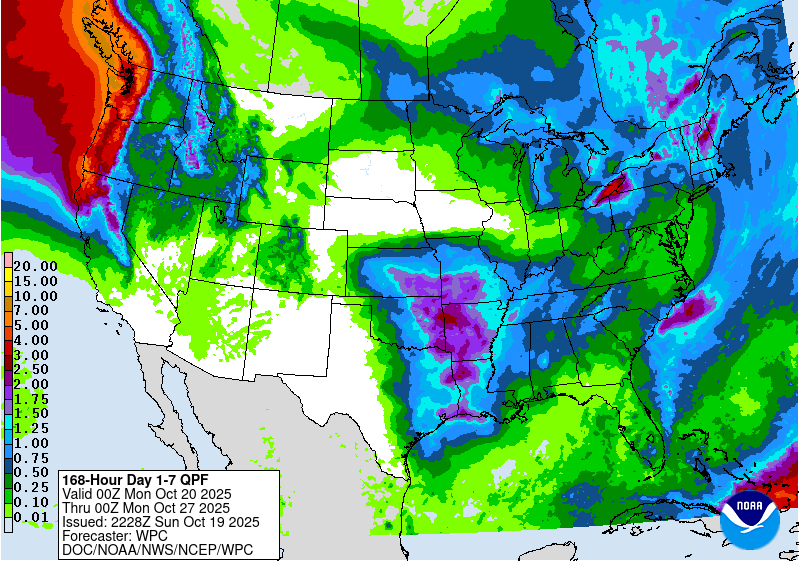-

The latest 7-day QPF map shows that most of the region will see little rain again this week after showers passed through today as a cold front approached the area. The remains of the front will bring rain to the Florida Peninsula early this week but the rest of the region will remain dry. By…
Posted in: Climate outlooks -

UGA pecan specialist Lenny Wells posted a story this week on his blog about the yields that pecans are showing this year. He noted that while the tree loads of early varieties appear to be good, the weights of those loads are light. He indicated that the most likely culprit for this is the extended…
Posted in: Fruit -

In the past, some corn in the Southeast has been grown for ethanol, although the closing of an ethanol producing plant in Camilla GA in 2020 reduced the market for this. A new ethanol-to-jet fuel plant in Soperton GA in 2024 may increase the market for Southeastern corn in the future. Much more corn in…
-

The latest Drought Monitor, released today, shows that drought expanded in most of the region this week due to warm temperatures and the nearly complete absence of rain. In west central Alabama and southwest Georgia, the areas of extreme (D3) drought nearly doubled and the extreme drought expanded into the Florida Panhandle, which is experiencing…
Posted in: Drought -

NOAA released the latest set of seasonal outlook maps today, although there was no accompanying press release or other publicity generated due to the current government shutdown. The maps for the December through January period show a pattern that is very typical for a La Nina, with warmer and drier than usual conditions occurring along…
-

The latest 7-day outlook from the National Hurricane Center shows two new areas of potential development in the Atlantic. The northern one highlights a small likelihood of development along a frontal boundary off the East Coast of the US. It is currently listed as just a 10% chance of developing in the next week. The…
Posted in: Tropical weather -

Heat injury and even death is something that we get reminded about at the beginning of every summer in the Southeast, and for good reason. Heat-related illnesses can affect anyone, but people who work outdoors, play outside on golf courses, football fields, and lakes, or are heat-sensitive folk like older people or young children, are…